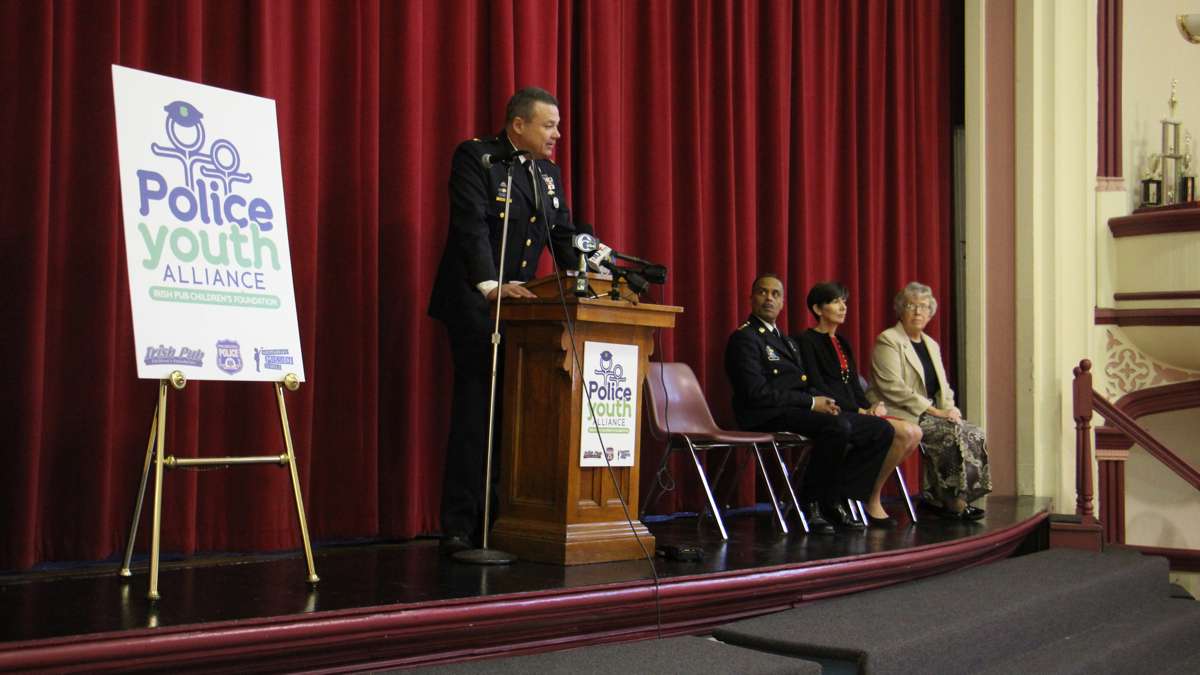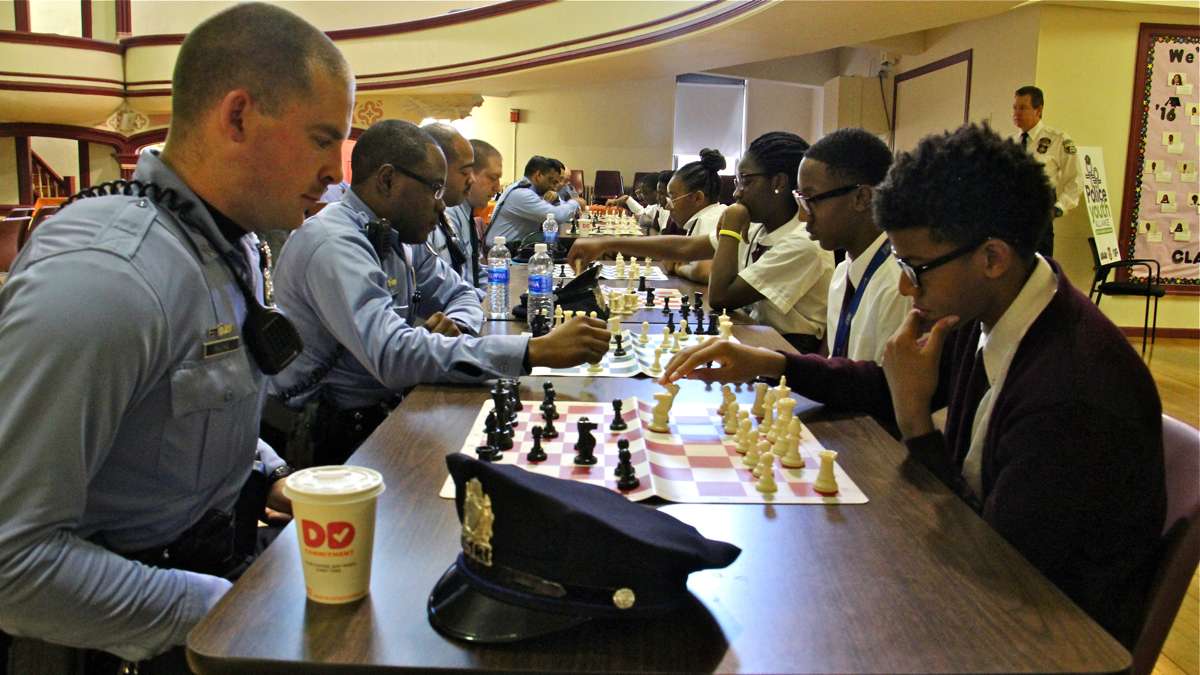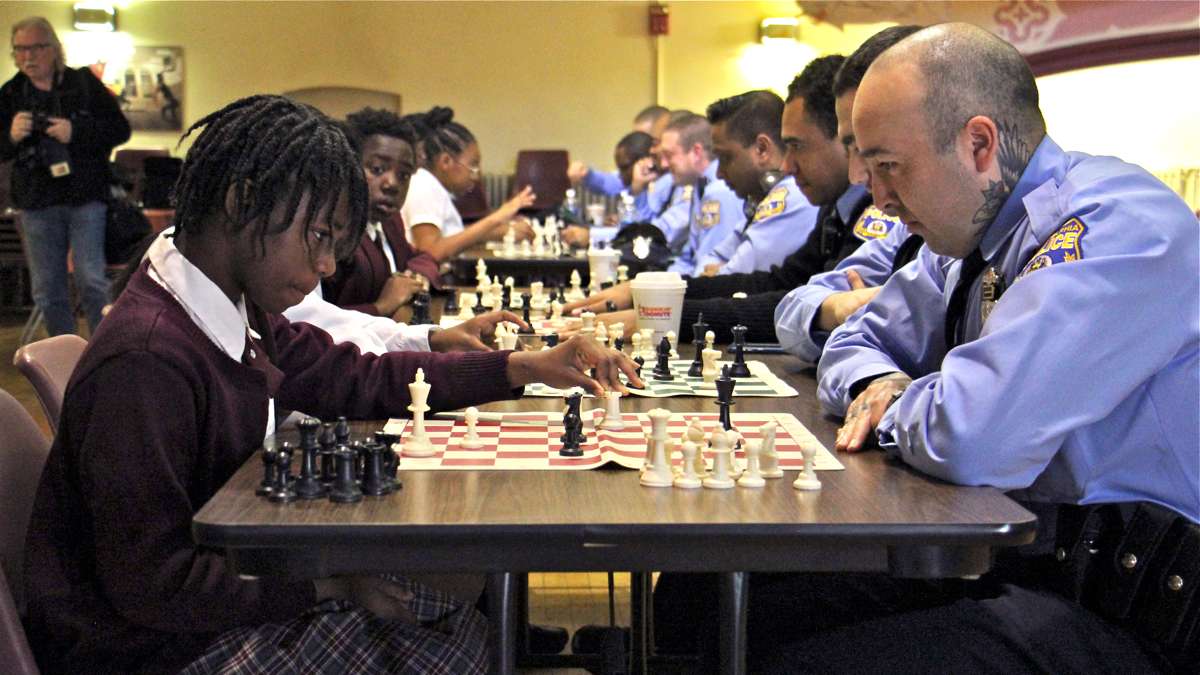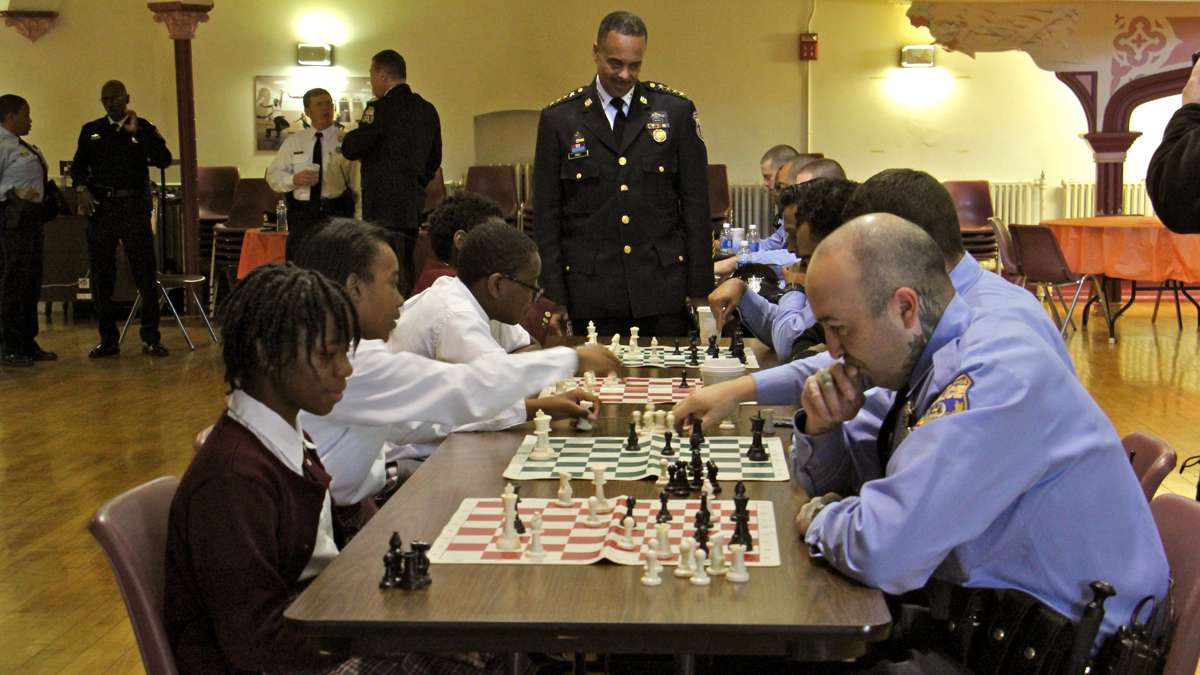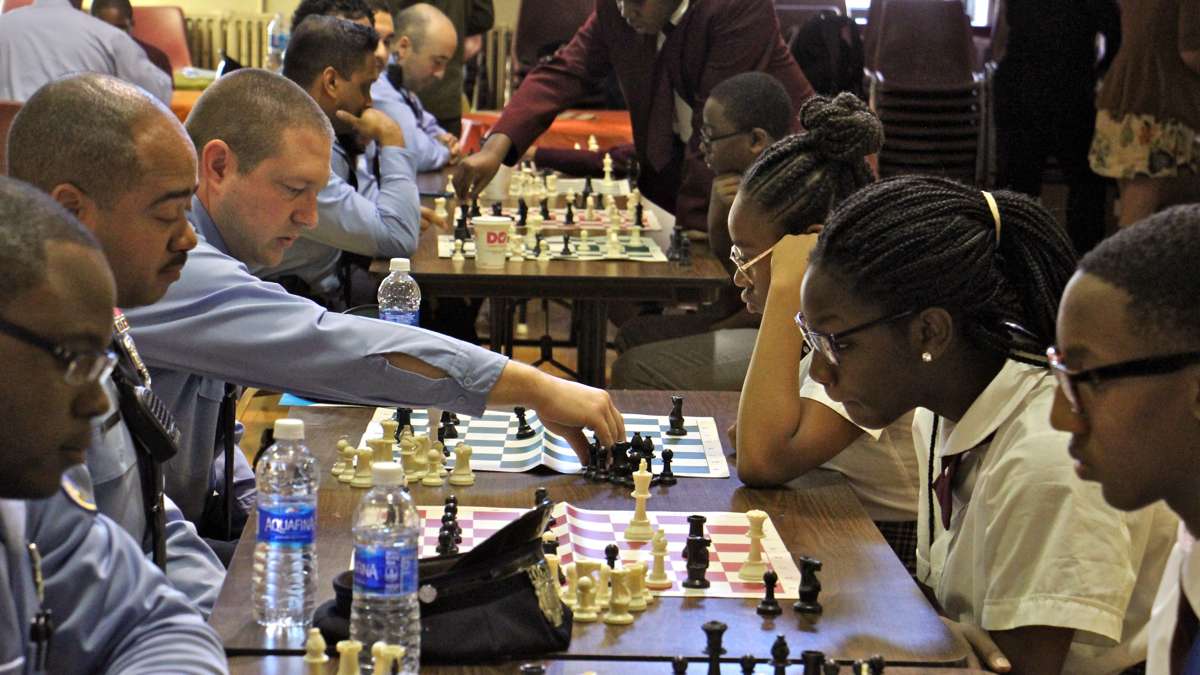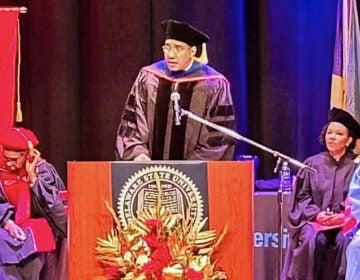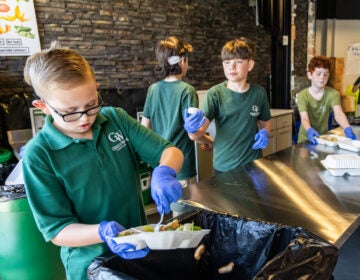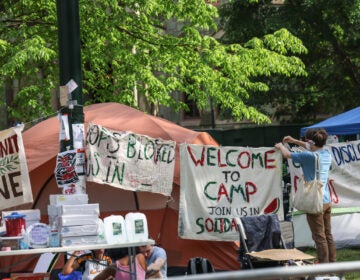Clubs run by Philly cops: A recipe for harmony?
Cops aren’t always a welcome sight in Philadelphia’s lowest-income neighborhoods. One organization is trying to change that, however, by matching school kids with uniformed police officers.
The Police Youth Alliance, founded last year as a pilot program, announced Thursday that it will expand to seven Catholic schools across the city. Through the alliance, officers run school clubs for chess to reading to step dance.
Participating officers purposefully wear their uniforms while they run the clubs. The point is to create positive associations with the uniform so kids don’t simply equate on-duty cops with mayhem or punishment.
“We’re hoping the children will eventually see past the uniform and see the person,” said Mark O’Connor, founding member of the Irish Pub Children’s Foundation, which funds the Police Youth Alliance.
That is especially important today, said Philadelphia Police Commissioner Richard Ross, because of heightened tensions between America’s police and minority communities.
“A number of communities across this nation feel their relationships with police are tenuous,” Ross said. “Working with our community partners, such as the Irish Pub Children’s Foundation, we are hoping to change the narrative. Our officers teaching students fun and interactive activities is a great way to start.”
On Thursday morning — shortly before a news conference to announce the alliance’s expansion — Officer Edwin Vaughn and eighth-grader Douglas English sat down for a game of chess at St. Martin de Porres School in North Philadelphia. St. Martin de Porres belongs to Independence Mission Schools, a network of Catholic schools serving mostly low-income students in Philadelphia. All seven schools in the Police Youth Alliance are Independence Mission Schools.
At first Vaughn and Douglas traded moves mostly in silence.
After two or three awkward minutes, a slow trickle of dialogue emerged. Douglas lost his queen early in the game and quietly admonished himself. Vaughn said it was OK, at least he’d recognized his mistake.
About halfway through the game, Douglas asked if Vaughn liked being a police officer.
“I love being a police officer,” he said. “I get to help people every day.”
Vaughn said he’d been on the force for 14 years — Douglas’ entire life — and hoped someday to become a detective. What does Douglas want to do when he grew up?
The boy didn’t want to say. It was too embarrassing.
Finally, after a bit of gentle cajoling, he blurted out, “I want to be a professional wrestler.”
Wrestling, he explained, used to be popular when he was younger. It wasn’t so popular anymore and he worried his classmates would think it childish that he still loved the sport.
Vaughn told him he shouldn’t worry what others think. Even if wrestling wasn’t a popular profession anymore, he should still pursue it. He should do what he loved.
“Next time, when someone asks you, say it proudly, ‘I want to be a professional wrestler,’” Vaughan said.
Douglas said he would.
At game’s end, the officer asked the boy if he wanted to play again. He did. And so they put the pieces back on the board.
WHYY is your source for fact-based, in-depth journalism and information. As a nonprofit organization, we rely on financial support from readers like you. Please give today.



